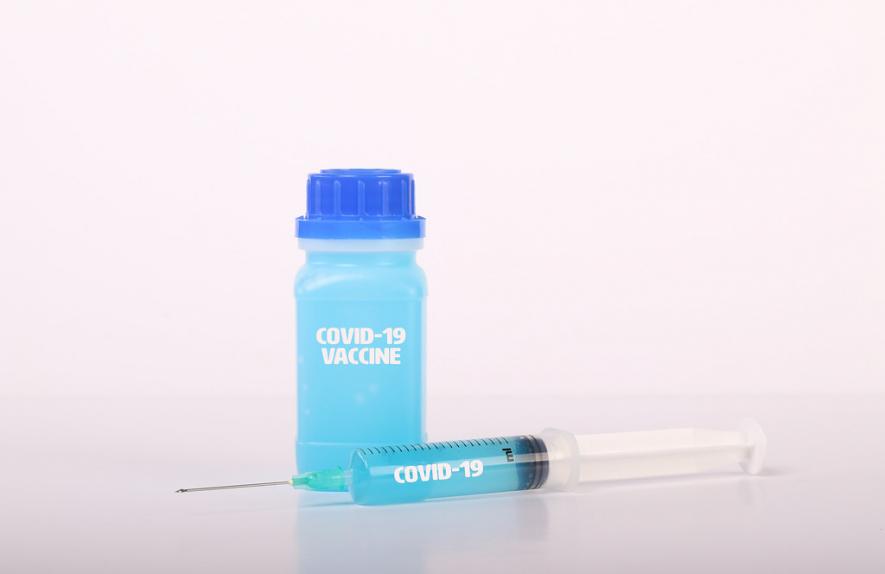Pfizer Vaccine Hype: How Much Hope Does it Bring to Low-Income Countries?

Last week offered some good news about a vaccine against COVID-19. On Monday, American multinational Pfizer and its partner BioNTech said their experimental vaccine appeared to be very effective against the disease. They claimed that the vaccine showed an efficacy more than 90%, raising a wave of hope across the world.
But, some pressing questions have emerged right after the declaration of the successful trial results. One, if the vaccine comes out well in showing its effectiveness in curtailing the disease, who will be the key beneficiaries? Two, will countries get an equal share of the vaccine?
The current scenario hints at a grim situation for lower and middle-income countries regarding the availability and use of the vaccine. The first thing is that the Pfizer vaccine will need a very sophisticated storage capacity, where the temperature will have to be maintained at an extremely low range—about -70 to -80 degree Celsius. This is much and much lower in comparison to the normal freezers, which attain a temperature of 0 degree to -4 degree Celsius only.
Arranging such storage while distributing the vaccine to different parts of a country, such as India, seems nearly unviable. The AIIMS (All India Institute of Medical Sciences) director Randeep Guleria has already raised this concern.
“Pfizer vaccine has to be kept at -70 degrees Celsius, which is a challenge for developing countries like India, where we will have difficulties in maintaining a cold chain, especially on rural missions. Overall, it is encouraging news in vaccine research for those in Phase III trials” said Dr. Guleria. The extreme cold storage is not available in most hospitals in India, even those in big cities.
Likewise, most of the low- and middle-income countries will face enormous problems in delivering the vaccine to their citizens. Rachel Silverman of the non-profit organisation, Centre for Global Development in the US, has also raised similar apprehensions. She says it (delivery) will be difficult even for a country like the US.
“In the US, they're projecting it’s going to be very difficult for this vaccine to be administered in just a normal doctor's office," Silverman says. "So the vaccine is probably not going to be a great option for most low- and middle-income countries” she added.
The other important issue regarding the vaccine will be its cost, which again will affect the low- and middle-income countries.
The Pfizer vaccine is an mRNA vaccine and this kind of a vaccine will be very expensive for India. Gagandeep Kang, a professor of microbiology at CMC Vellore, in an interview has raised this issue. She warned that such vaccines are going to be seriously expensive for India. Notably, Pfizer has not yet said anything about what cost the vaccine will bear.
Pfizer said it could manufacture about 1.3 billion doses by next year. Well, that might sound quite a lot, but most of it has already been booked the richer countries. According to reports, the US, the UK, the EU, Canada and Japan have already booked, through advanced purchase agreement, over 1.1 billion doses in total, which is more than 80% of the estimated supply. What is left after meeting the demand of these countries will be grossly insufficient for poorer countries.
“For most people in low- and middle-income countries, this vaccine is not likely to be available, at least, by the end of next year” commented Silverman. In other words, the economically advanced countries will readily swallow the lion’s share while the low- and middle -income countries will have to wait till the end of, may be, even next year.
Incidentally, the business of vaccines got a booster after this announcement. Pfizer’s CEO Albert Bourla filed to sell stocks of his company worth millions of dollars. This happened on Monday, the very day the vaccine trial results were out and market reacted overwhelmingly, sending the shares of the pharma MNC soaring.
Hence, the much-hyped hopes projected after Pfizer and BioNTech vaccine’s successful trials, brought little enthusiasm for economically backward countries. To meet the global demand and as an effective measure of tackling the pandemic, a vaccine that fulfils mainly two criteria will be a more encouraging one. The first, being a technical one, is that relatively easy storage and transportability and second is the cost effectiveness of the vaccine.
Get the latest reports & analysis with people's perspective on Protests, movements & deep analytical videos, discussions of the current affairs in your Telegram app. Subscribe to NewsClick's Telegram channel & get Real-Time updates on stories, as they get published on our website.















